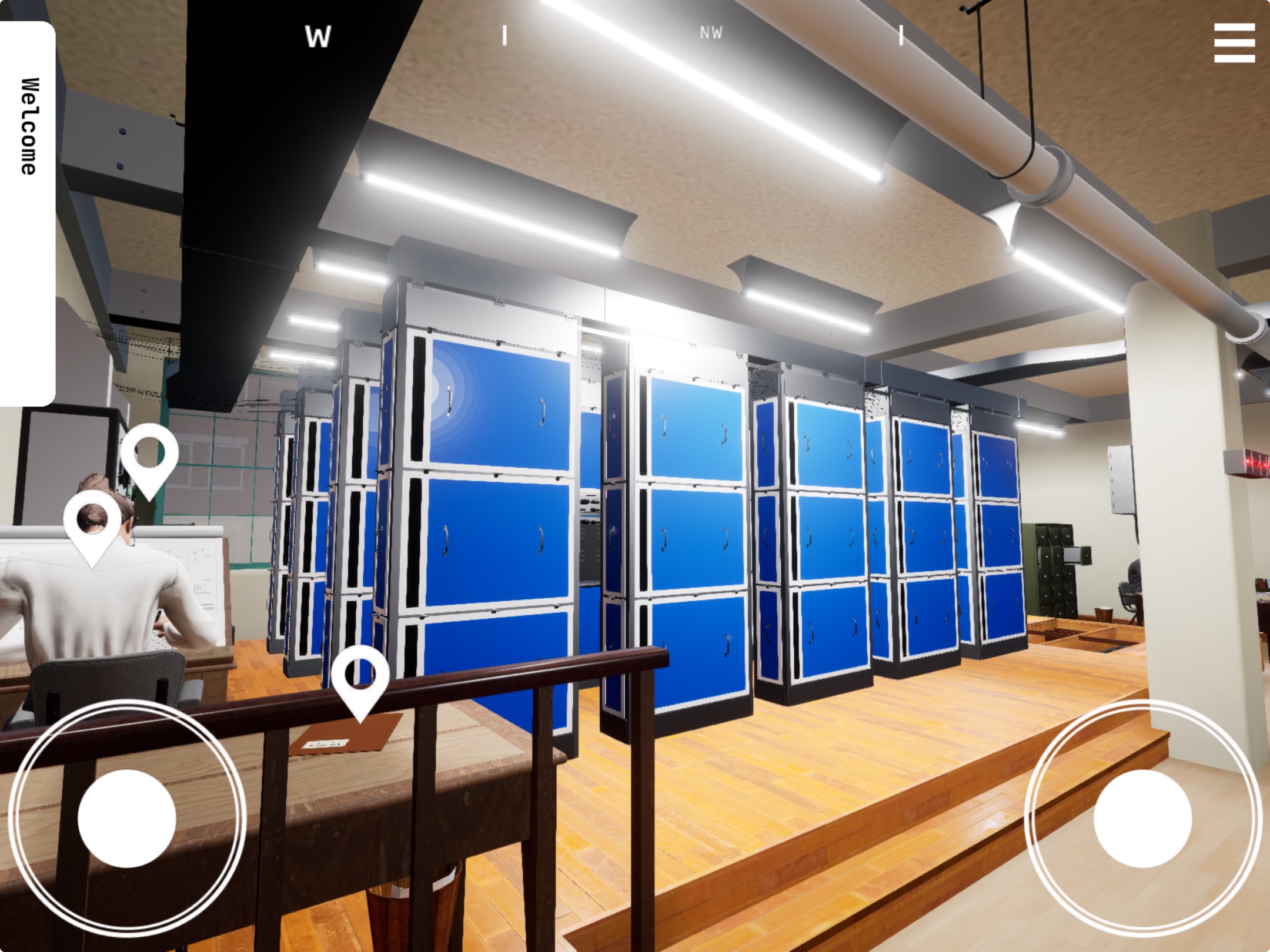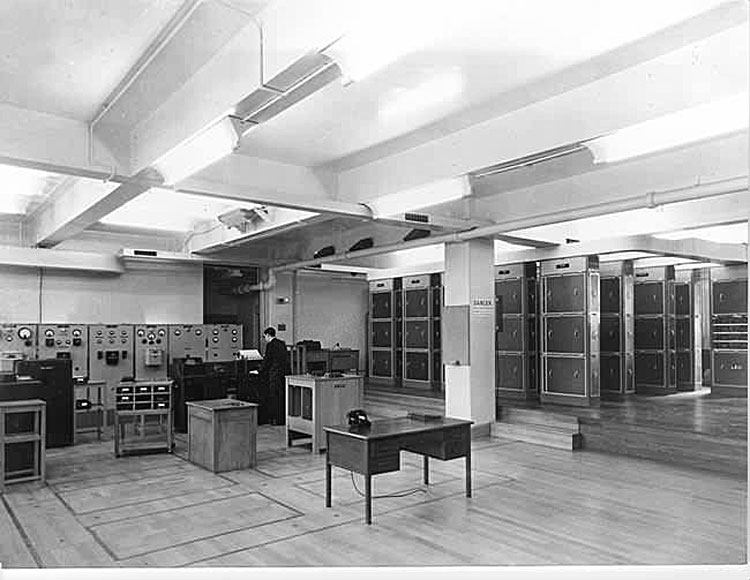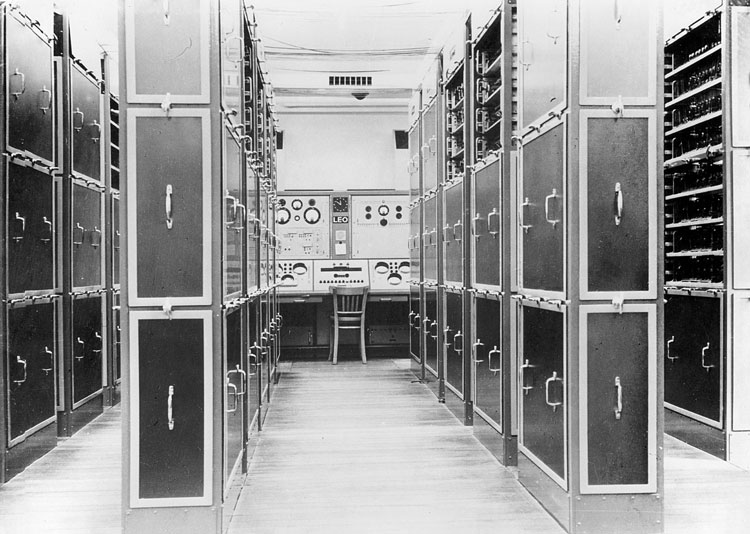
This image is a screenshot of the Virtual LEO I
Welcome to the LEO Computers Society Website

- In November 2026 LEO will have its 75th birthday - LEO was developed from the Cambridge EDSAC between 1949 and 1951 and ran the first commercial data processing job in the world, the bakery valuation in November 1951. The LEO was developed by John Pinkerton and his team at Cadby Hall, Hammersmith, London which was Joseph Lyons and Company’s main offices and manufacturing facilities. Pinkerton […]
- Chris Date -Zoom forum June 18th 2025 at 17.00 BST - . Thoughts, lessons and anecdotes from over fifty years as a database teacher, writer, and researcherChris Date LCS member and LEO Computers Employee in 1962 Zoom forum June 18th 2025 at 17.00 BST Hosted by the LEO Computers Society, and with the invitation extended to anyone interested in the history of Information Technology About Chris Date: Chris is an independent author, […]
- LEO Matters issue 17, May 2025 - LEO Matters Issue 17, May 2025 has been published and circulated to Members and others. It can be downloaded by following the download link on this page . View PDF View PDF
- LEO Matters issue 16, November 2024 - LEO Matters Issue 16, November 2024 has been published and circulated to Members and others. It can be downloaded by following the download link on this page . https://mcusercontent.com/f8018061687bc9e6975431f76/files/d2a43dee-1321-d109-cc3c-4ac099e8cf08/LEO_Matters_16.pdf
- Kate Stockwell appointed as Land Archivist - We are delighted to be able to announce that we have appointed Kate Stockwell to this new position. Kate impressed the selection panel of Lisa McGerty, Peter Byford and Hilary Caminer and is scheduled to take up her post on Wednesday, 12th March. Kate will be working on the LEO archive at CCH – following […]
- LEO Matters issue 15, June 2024 - LEO Matters Issue 15, November 2024 has been published and circulated to Members and others. It can be downloaded by following the download link on this page .
- Rebuild of EDSAC at TNMoC: Presented by Andrew Herbert - Andrew Herbert, is a distinguished Computer Science practitioner who hails from the Cambridge Tradition. Having held a very senior position in Microsoft Research, in retirement he is the leader of the project on display at TNMoC to construct a replica of the pioneering EDSAC I computer at the University of Cambridge which first went into […]
- LEO on the Radio - Over time there have been a number of programmes on the BBC Radio which have talked about LEO. Neville Lyons put together material extracted from the BBC programmes together with relevant Slides to provide visual content and this was presented on 12 December 2023. A recording is available here Zoom Recording To listen to the […]
- More on the UK IT Industry Award 2023 - BCS has published an article Online here
- UK IT Industry Award 2023 - The LEO Computers Society and the Centre for Computing History have been awarded “Highly Commended” in the UK IT Industry awards for 2023., charities sector. John Paschoud, Vince Bodsworth, Peter Byford and Bernard Behr attended the Black tie event on November 8th at the Evolution Centre in Battersea Park

The Centre for Computing History, Cambridge is our partner in a National Lottery Heritage funded project Swiss Rolls, Tea and the Electronic Office. To find out more about this click (Welcome to LEO)
There is also a regular Project Blog at (Project Blog).
During the Covid Pandemic the Museum has had to close its doors. As it depends on school and individual visits for almost all its income, it has been appealing for donations. We hope that members may be able to help them in these difficult times. (See Here)
ABOUT US
It was, surprisingly, a British catering firm, J. Lyons and Co – famous for their teashops, Swiss rolls and ice cream which pioneered the development of computing for commercial applications. As Guinness World Records ratifies, Lyons Electronic Office (LEO) was the first business computer in the world.
In 1951 the LEO I computer was operational and ran the world’s first regular routine office computer job.


The LEO Computers Society (which has charitable status) started life as a reunion society for people who worked on these remarkable machines. Its principal mission now is to ensure that LEO’s heritage is preserved, protected and – importantly – promoted to wider audiences. Read more about the LEO Computer Societies mission (Our Mission). If you want to understand the development timeline and the rationale for its development see what the Science Museum has to say.
More About Us
URGENT REQUEST: Do you have any LEO memorabilia – e.g. pieces of hardware, engineering drawings, charts and plans, programming information, computer files, correspondence or reminiscences?
If so, you can help us. We are collecting such material to join a growing archive at the Centre for Computing History in Cambridge, our partners in a National Lottery Heritage funded project to preserve, protect and promote the history of the world’s first business computer.
Please contact the Secretary@leo-computers.org.uk for further details.
Become a member
Membership of the Society is open to:
- all ex-employees of LEO Computers and its succeeding companies;
- anyone who worked with a LEO computer;
- and indeed anyone who has an interest in the history of LEO Computers.
- we especially would encourage educators to join
We welcome the active participation of members – whether through volunteering as interviewers for oral histories, writing their own reminiscences, contributing to the newsletter or simply through spreading the word!
So Join Today
